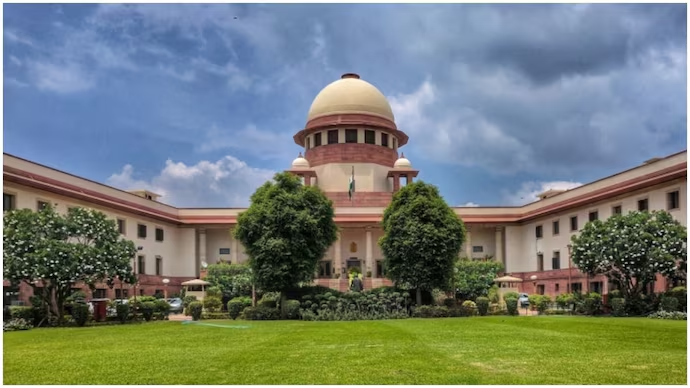Supreme Court Overturns Calcutta High Court Order Asking Girls To Control Sexual Urges

News Mania Desk/Agnibeena Ghosh/21th August 2024
The Supreme Court of India has recently overturned a controversial ruling by the Calcutta High Court that advised adolescent girls to control their sexual urges. The decision, handed down by a Bench of Justices Abhay S Oka and Ujjal Bhuyan, has drawn significant attention due to its implications for the judicial treatment of adolescent behavior and gender roles.
The original ruling by the Calcutta High Court had sparked widespread criticism for its suggestion that young girls should be responsible for managing their sexual desires, rather than “giving in to two minutes of pleasure.” The High Court’s comments, which advocated a ‘duty/obligation based approach’ for teenagers, implied that adolescent males and females have different responsibilities when it comes to sexual behavior. These remarks were widely seen as objectionable, irrelevant, and overly preachy, leading to public outrage and concerns about the message being sent to young people.
In December 2023, the Supreme Court took suo motu cognizance of the matter, recognizing the need to address the sweeping generalizations made by the Calcutta High Court. The top court expressed concern that the High Court’s ruling sent the wrong signals and failed to apply the appropriate legal principles under Section 482 of the Criminal Procedure Code (CrPC).
During the hearings, the Supreme Court was particularly critical of the High Court’s approach, questioning the principles being applied and the potential impact of such a judgment on societal attitudes towards adolescent sexuality. The Bench emphasized the importance of courts writing judgments that are both legally sound and socially responsible, cautioning against rulings that could perpetuate harmful stereotypes or reinforce outdated notions of gender roles.
The case in question involved the acquittal of a young man who had been convicted of raping a minor girl with whom he had a romantic relationship. The division bench of Justices Chitta Ranjan Dash and Partha Sarathi Sen had overturned the conviction, leading to the controversial comments about adolescent behavior. However, the Supreme Court has now restored the youth’s conviction, stating that a committee of experts will determine the appropriate sentence.
Senior Advocates Madhavi Divan and Liz Mathew served as amici curiae in the case, offering their expertise to assist the court in reaching a fair and just decision. The State of West Bengal, represented by Senior Advocate Huzefa Ahmadi and advocate Astha Sharma, also appealed against the High Court’s verdict, aligning with the Supreme Court’s concerns.
This ruling by the Supreme Court is significant not only for its immediate legal impact but also for the broader message it sends about the treatment of adolescent sexuality in the judicial system. The decision underscores the need for sensitivity and care in judicial pronouncements, particularly when dealing with issues that affect young people and societal attitudes towards gender and sexuality.
By setting aside the Calcutta High Court’s ruling, the Supreme Court has reaffirmed the importance of fair and just legal principles, while also addressing the need for a more progressive and informed approach to issues of adolescent behavior. This judgment serves as a reminder of the critical role the judiciary plays in shaping social norms and protecting the rights of all individuals, regardless of age or gender.






